BMW X1 vs BYD Atto 3 – Differences & prices compared
Compare performance, boot space, consumption and price in one view.
Find out now: which car is the better choice for you – BMW X1 or BYD Atto 3?
The BMW X1 (SUV) comes with a Diesel MHEV, Petrol MHEV, Plugin Hybrid, Petrol or Diesel engine and Automatic transmission. In comparison, the BYD Atto 3 (SUV) features a Electric engine with Automatic transmission.
When it comes to boot capacity, the BMW X1 offers 540 L, while the BYD Atto 3 provides 440 L – depending on how much space you need. If you’re looking for more power, decide whether the 326 HP of the BMW X1 or the 204 HP of the BYD Atto 3 suits your needs better.
In terms of consumption, the values are 0.80 L per 100 km for the BMW X1, and 16 kWh for the BYD Atto 3.
Price-wise, the BMW X1 starts at 38200 £, while the BYD Atto 3 is available from 32600 £. Compare all the details and find out which model fits your lifestyle best!
In the highly competitive compact SUV segment, the BMW X1 and BYD Atto 3 present two distinct philosophies of automotive design and engineering. While the BMW X1 boasts a premium feel with its luxurious interior and dynamic driving experience, the BYD Atto 3 appeals with its impressive electric range and value-driven features. Ultimately, buyers are faced with a choice between European refinement and cutting-edge electric technology tailored for modern needs.
BMW X1
The new BMW X1 effortlessly blends sporty elegance with practical functionality, making it a standout choice in the compact SUV segment. Inside, the sophisticated cabin design is complemented by high-quality materials and cutting-edge technology, creating a welcoming and advanced driving environment. On the road, the vehicle's agile handling and responsive performance promise an engaging driving experience, whether navigating urban streets or embarking on longer journeys.
details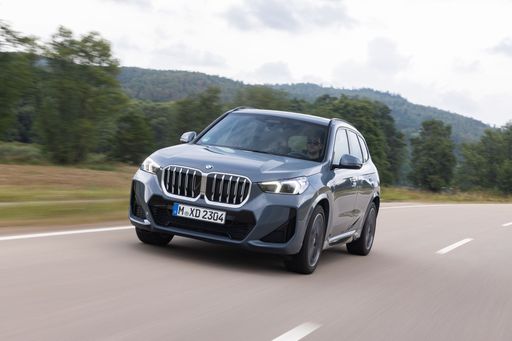 @ press.bmwgroup.com
@ press.bmwgroup.com
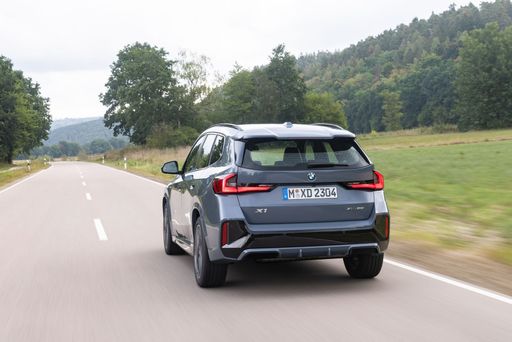 @ press.bmwgroup.com
@ press.bmwgroup.com
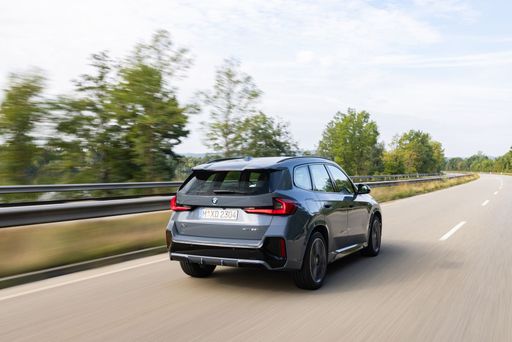 @ press.bmwgroup.com
@ press.bmwgroup.com
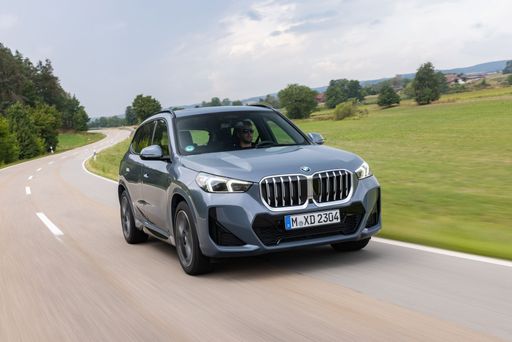 @ press.bmwgroup.com
@ press.bmwgroup.com
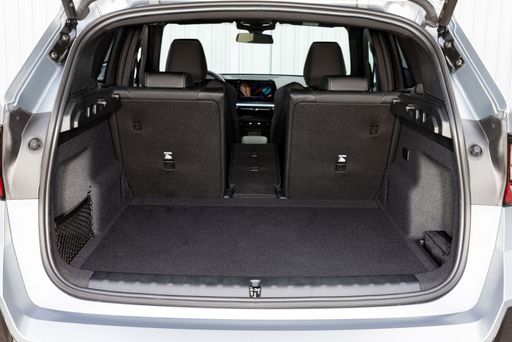 @ press.bmwgroup.com
@ press.bmwgroup.com
BYD Atto 3
The BYD Atto 3 makes a significant impression with its sleek design and modern aesthetics, embodying a sense of innovation and style. Its interior combines comfort and functionality, featuring high-quality materials and cutting-edge technology to enhance the driving experience. As an electric vehicle, it promises an eco-friendly performance, catering to those who are both environmentally conscious and passionate about automotive advancements.
details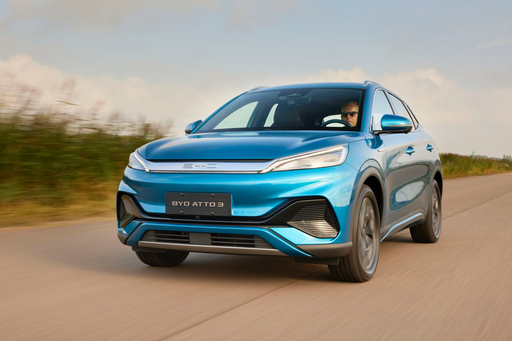 @ press.bydauto.be
@ press.bydauto.be
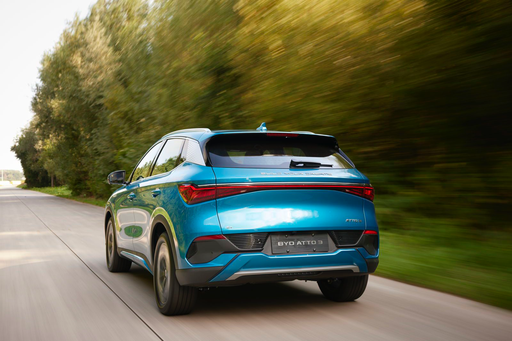 @ press.bydauto.be
@ press.bydauto.be
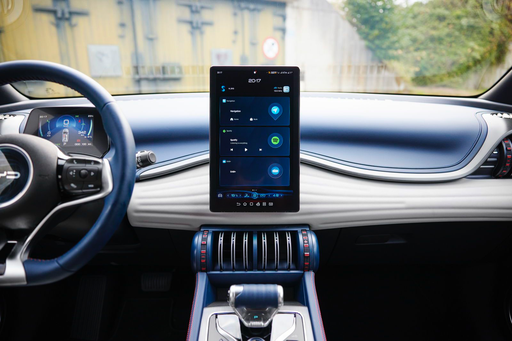 @ press.bydauto.be
@ press.bydauto.be
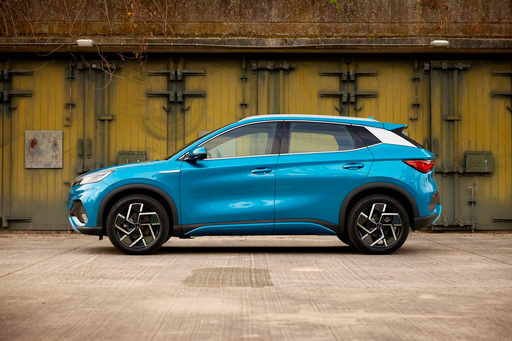 @ press.bydauto.be
@ press.bydauto.be
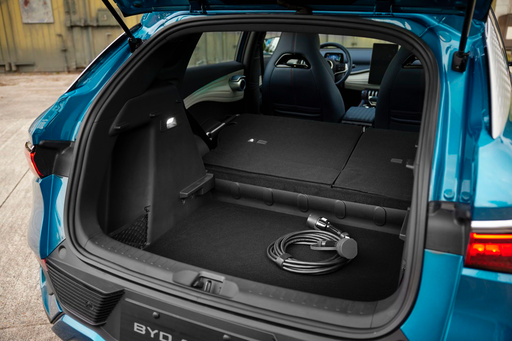 @ press.bydauto.be
@ press.bydauto.be
In the competitive SUV market, two models that have generated significant interest are the BMW X1 and the BYD Atto 3. Both vehicles represent different philosophies in automotive design and technology, catering to diverse consumer preferences. This article delves into their technical specifications, innovative features, and how they stack up against each other.
Design and Dimensions
The BMW X1 showcases the classic athletic aesthetics synonymous with the brand. With a length of 4500 mm and a width of 1845 mm, it commands a robust presence on the road. The X1 offers a height variance from 1622 mm to 1642 mm depending on the specific configuration, which supports a roomy cabin environment for up to five passengers. Its trunk capacity varies from 490 to 540 liters, providing ample storage for everyday needs.
In contrast, the BYD Atto 3 presents a modern, futuristic appearance with a slightly larger footprint—measuring 4455 mm in length and 1875 mm in width, while standing at 1615 mm tall. Its trunk space of 440 liters is slightly smaller but still practical for an SUV. The Atto 3's design emphasizes sleek lines and contoured surfaces, appealing to those seeking a stylish, electric vehicle.
Engine and Performance
The BMW X1 offers a variety of powertrains, including diesel and petrol engines, along with hybrid variants. This flexibility in engine options (ranging from 150 to 326 HP) allows drivers to choose based on performance preferences and fuel efficiency needs. Its 0-100 km/h acceleration spans from a swift 5.4 seconds in the high-performance model to a respectable 9.2 seconds in the base variant. Furthermore, it features a top speed of up to 250 km/h, showcasing its performance prowess.
On the other hand, the BYD Atto 3 operates solely as an electric vehicle, featuring a potent electric motor delivering 204 HP and achieving 310 Nm of torque. It outshines traditional fuel efficiency with a consumption rate of just 16 kWh/100 km. The Atto 3 accelerates from 0-100 km/h in a commendable 7.3 seconds, providing an exhilarating driving experience while maintaining a top speed of 160 km/h.
Electricity and Sustainability
When it comes to sustainability, the BYD Atto 3 is a clear standout. Its fully electric drivetrain produces zero tailpipe emissions, achieving CO2 efficiency class A. With an electric range of 420 km, the Atto 3 is designed for environmentally conscious consumers who prioritize green technology without sacrificing practicality.
Conversely, the BMW X1 also offers a plugin hybrid option with an electric range of 83 km, allowing for short commutes on electric power alone. This model is fitted with a lithium-ion battery that has a capacity of 14.2 kWh, marrying electric and traditional power sources for drivers who occasionally venture further than the electric range allows.
Driving Experience and Innovation
The driving experience in the BMW X1 is characterized by its dual-clutch automatic transmission, which provides smooth and rapid gear changes, enhancing performance, especially during acceleration. The choice between front-wheel and all-wheel drive also allows drivers to tailor their vehicle to suit their driving conditions and preferences.
In contrast, the BYD Atto 3 employs a reduction gearbox in its automatic transmission, focused on optimizing efficiency and reducing energy loss. This innovation enables the Atto 3 to provide a seamless driving experience while maximizing battery longevity. The vehicle's advanced infotainment system and technology suite are designed to enhance connectivity and user-friendliness.
Conclusion
Choosing between the BMW X1 and BYD Atto 3 ultimately depends on personal preferences and driving needs. If you are looking for a vehicle that combines a variety of performance options, luxury design, and exhilarating speed, the BMW X1 is an excellent choice. In contrast, for environmentally conscious consumers who want a stylish, efficient electric SUV, the BYD Atto 3 stands as a compelling option. With both models offering unique strengths, prospective buyers are set for a thrilling automotive journey.

|

|
|
|
|
Costs and Consumption |
|
|---|---|
|
Price
38200 - 55500 £
|
Price
32600 - 34300 £
|
|
Consumption L/100km
0.8 - 7.7 L
|
Consumption L/100km
-
|
|
Consumption kWh/100km
-
|
Consumption kWh/100km
16 kWh
|
|
Electric Range
81 km
|
Electric Range
420 km
|
|
Battery Capacity
14.20 kWh
|
Battery Capacity
-
|
|
co2
18 - 175 g/km
|
co2
0 g/km
|
|
Fuel tank capacity
47 - 54 L
|
Fuel tank capacity
-
|
Dimensions and Body |
|
|---|---|
|
Body Type
SUV
|
Body Type
SUV
|
|
Seats
5
|
Seats
5
|
|
Doors
5
|
Doors
5
|
|
Curb weight
1575 - 1935 kg
|
Curb weight
1825 kg
|
|
Trunk capacity
490 - 540 L
|
Trunk capacity
440 L
|
|
Length
4500 - 4505 mm
|
Length
4455 mm
|
|
Width
1845 mm
|
Width
1875 mm
|
|
Height
1622 - 1642 mm
|
Height
1615 mm
|
|
Payload
490 - 500 kg
|
Payload
335 kg
|
Engine and Performance |
|
|---|---|
|
Engine Type
Diesel MHEV, Petrol MHEV, Plugin Hybrid, Petrol, Diesel
|
Engine Type
Electric
|
|
Transmission
Automatic
|
Transmission
Automatic
|
|
Transmission Detail
Dual-Clutch Automatic
|
Transmission Detail
-
|
|
Drive Type
Front-Wheel Drive, All-Wheel Drive
|
Drive Type
Front-Wheel Drive
|
|
Power HP
136 - 326 HP
|
Power HP
204 HP
|
|
Acceleration 0-100km/h
5.4 - 9.2 s
|
Acceleration 0-100km/h
7.30 s
|
|
Max Speed
190 - 250 km/h
|
Max Speed
160 km/h
|
|
Torque
230 - 477 Nm
|
Torque
310 Nm
|
|
Number of Cylinders
3 - 4
|
Number of Cylinders
-
|
|
Power kW
100 - 240 kW
|
Power kW
150 kW
|
|
Engine capacity
1499 - 1998 cm3
|
Engine capacity
-
|
General |
|
|---|---|
|
Model Year
2023 - 2025
|
Model Year
2023
|
|
CO2 Efficiency Class
D, E, B, F
|
CO2 Efficiency Class
A
|
|
Brand
BMW
|
Brand
BYD
|
BMW X1
The New BMW X1: A Fusion of Innovation and Performance
For those in search of a luxury SUV that masterfully combines technical innovation with driving pleasure, the BMW X1 stands as a paragon of design and engineering excellence. As part of the competitive compact SUV segment, the BMW X1 offers a robust array of features targeted towards both the tech-savvy and the driving enthusiast.
Advanced Engine Options
The BMW X1 delivers a versatile range of powertrains to suit the specific needs of different drivers. From the efficient diesel engines to cutting-edge plug-in hybrid variants, there’s a model for every preference. The diesel variants, including mild-hybrids, provide a balance between fuel efficiency and power delivery. Petrol engines, on the other hand, offer spirited performance with a more traditional feel.
Efficiency Meets Performance
The BMW X1's remarkable range of power, from 136 PS to an impressive 326 PS, caters to diverse driving needs. Models fitted with mild-hybrid technology afford drivers reduced fuel consumption and emissions, with the plug-in hybrid leading the field in eco-efficiency with consumption figures as low as 0.8 L/100km and an electric range of up to 83 km.
Technological Innovation
Stepping inside the BMW X1, drivers are greeted with an intuitive cockpit, seamlessly integrating the latest BMW technology. An advanced infotainment system offers connectivity at the touch of a button, while an array of driver assistance systems ensure that safety and convenience are at the forefront.
Design and Comfort
The BMW X1 exudes a powerful presence on the road with its refined SUV aesthetics. Offering substantial interior space, it comfortably accommodates up to five passengers with ample boot capacity ranging from 490 to 540 litres. BMW also offers various trim levels, including the luxurious M Sport package, that enhance both the aesthetic and dynamic appeal.
Dynamic Driving Experience
BMW enthusiasts will appreciate the dynamic handling characteristics synonymous with the brand. Whether it's the front-wheel drive or the xDrive all-wheel system, the BMW X1 delivers responsive handling and a smooth driving experience, making it ideal for both urban and motorway driving scenarios.
Conclusion
The BMW X1 raises the bar for compact SUVs, offering a harmonious blend of innovation, efficiency, and driving pleasure. For those seeking a vehicle that stands out both in terms of aesthetics and technology, the X1 is undoubtedly a worthy contender.
BYD Atto 3
Introducing the BYD Atto 3: A Revolution in Electric SUVs
The BYD Atto 3 stands as a testament to the innovative strides being made in the realm of electric vehicles. With its sleek design and cutting-edge technology, this SUV is a beacon of what modern electric motoring can achieve. Packed with features that cater to both performance and sustainability, the Atto 3 is perfectly positioned to capture the attention of eco-conscious consumers and car enthusiasts alike.
Under the Bonnet: Power and Efficiency
At the heart of the BYD Atto 3 is a robust electric motor that delivers an impressive 204 PS (150 kW). Coupled with a front-wheel drive and an automatic gearbox, this setup ensures a smooth and responsive driving experience. The Atto 3 boasts a noteworthy acceleration, reaching 0-100 km/h in just 7.3 seconds, making it a formidable player in the electric SUV segment.
Efficiency is another strong suit of the Atto 3. The vehicle offers a remarkable consumption rate of just 16 kWh/100km. This efficiency, combined with an electric range of 420 km, provides drivers with both economical running costs and the flexibility for longer journeys without frequent recharging stops.
Design Innovations and Comfort
BYD has not only focused on power and efficiency but has also paid close attention to the design and comfort of the Atto 3. The SUV's dimensions — a length of 4455 mm, a width of 1875 mm, and a height of 1615 mm — provide a spacious interior, offering ample room for both passengers and cargo. With a boot capacity of 440 litres, trips with luggage are hassle-free.
The Atto 3 comes in two trim levels: Comfort and Design, each tailored to enhance user experience with a blend of elegance and practicality. The car is equipped with a range of modern interior features, designed to ensure a comfortable and enjoyable ride for all occupants.
Sustainability at Its Core
One of the standout aspects of the BYD Atto 3 is its commitment to sustainability. As an all-electric vehicle emitting zero CO2 emissions, it achieves a CO2-efficiency rating of class A. Such credentials not only position the Atto 3 as an environmentally-friendly choice but also offer potential benefits to consumers in regions with green vehicle incentives.
Competitive Pricing and Market Position
The BYD Atto 3 is competitively priced between €37,990 and €39,990, offering great value given the technology and features packed into the SUV. With these price points, it becomes an attractive option for those looking to transition to an electric vehicle without compromise on performance or features.
Final Thoughts
The BYD Atto 3 is a formidable entry in the electric SUV market, blending performance, efficiency, and sustainability with ease. For those seeking an electric vehicle that ticks the boxes of power, range, and design, the Atto 3 warrants a closer look. As electric vehicles continue to evolve, BYD's commitment to innovation ensures the Atto 3 is ahead of the curve, setting new benchmarks in the automotive industry.
What drivetrain options does the BMW X1 have?
The BMW X1 is offered with Front-Wheel Drive or All-Wheel Drive.
The prices and data displayed are estimates based on German list prices and may vary by country. This information is not legally binding.
